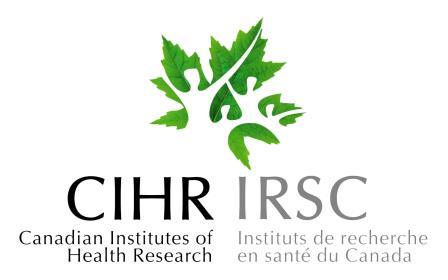CIHR
Reducing Stigma, Promoting Resilience for LGBTQ Youth
2012-2017
CIHR operating grant: $1, 977, 930 or $399, 586 per year for 5 years - Dr. Andre P. Grace & Dr. Kristopher Wells are Co-Investigators with Dr. Elizabeth Saewyc, Principal Investigator, UBC School of Nursing
Project Title: Reducing Stigma, Promoting Resilience: Population Health Interventions for LGBTQ Youth
This international research endeavour includes research colleagues from Canada and the United States. It is timely interdisciplinary research. As Dr. Grace and Dr. Wells noted in the report entitled Sexual Minority and Gender Variant Youth and Linkages between their Mental Health and Sexual Health, which they completed for the Public Health Agency of Canada, SGM youth and young adults experience social stigma, prejudice, and discrimination in individual (such as rejection by family and friends, harassment, bullying, and physical violence) and institutional (such as inequitable laws and public policies that fail to include and protect) contexts. All too frequently, the resulting stressors and trauma negatively impact the comprehensive health of SGM youth and young adults who experience such comprehensive health problems as eating disorders, cutting, and suicide attempts and completions.
As developed by Dr. Elizabeth Saewyc and the research team, the goal of this CIHR-funded research using mixed-mode research methods is to use findings to inform the development of effective school health and public health policies, prevention strategies, and targeted interventions to address the health needs of SGM youth. In conducting this research, the interdisciplinary research team will draw on population-based data sources. Data from all sources will be regularly analyzed separately by gender, with special attention to the intersectionality of gender, age, sexual orientation, ethnic culture, and place (rural or urban, specific province, US or Canada). This will be the standard for analyzing violence experiences, coping strategies, and risk behaviours, as well as protective factors that buffer youth responses to adverse experiences such as stigma. The research team will also examine longitudinal medical studies to explore biological markers linked to exposures to violence and protective factors. Again, the research team will analyze these data separately by sex, as there are different gendered cognitive, sociocultural, and physiological influences on stress responses. The research team will also use qualitative methods to conduct participatory evaluation studies of schools and school districts. This will involve conducting interviews and focus groups with questions focused around gender and sexual orientation, especially how gender-atypical youth are treated in the school contexts. In the research team's youth advisories and forums for integrated knowledge-to-action, researchers will hold both gender-segregated and gender-mixed groups in order to create a safe space for discussing gender-specific experience and to elicit each gender's perceptions of their own and others' experiences of homophobia and harassment. Finally, the research team will test all intervention evaluations both for effects as a whole and for effects within gender and sexual orientation groups. This testing will help researchers to better understand the effectiveness of interventions within gender groups and the potential need for gender-specific interventions.
